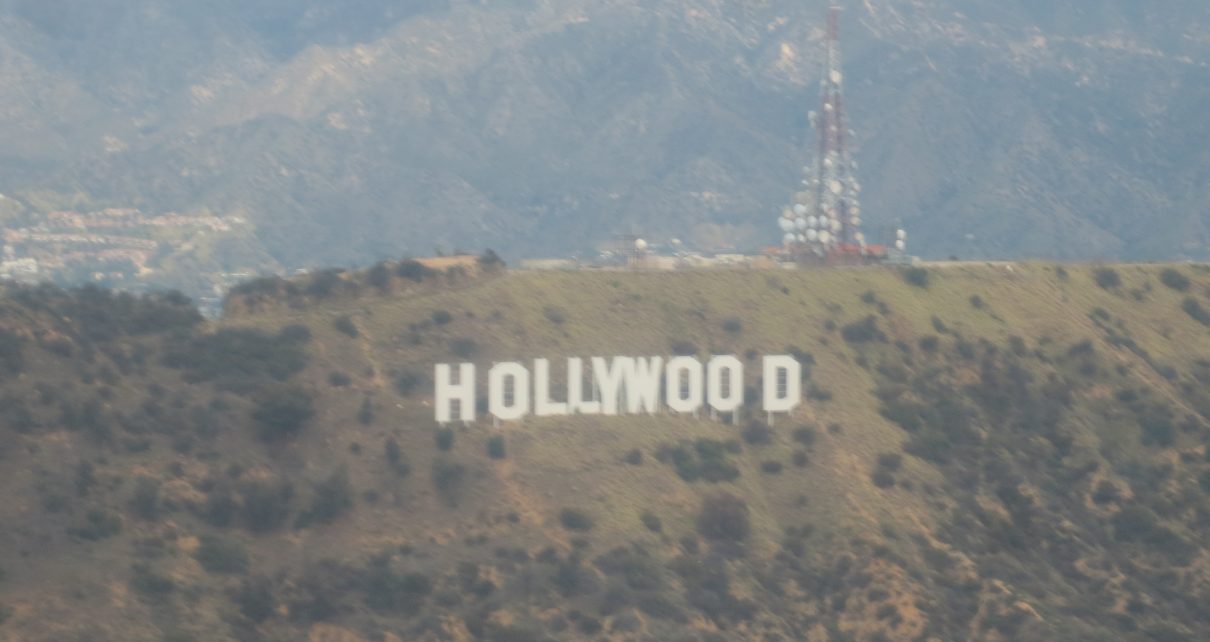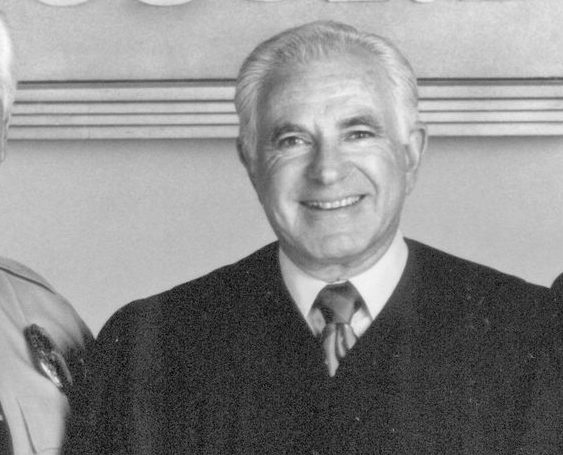
Hollywood Sign (Photo: Evan Symon for California Globe)
Screen Actors, Motion Picture and Television Producers Negotiations Break Down
Studios say actors union went too far on streaming residuals in their latest proposal
By Evan Symon, October 12, 2023 4:41 pm
Negotiations between the Screen Actors Guild-American Federation of Television (SAG-AFTRA) and the Alliance of Motion Picture and Television Producers (AMPTP) broke down on Wednesday, leading to suspended negotiations following several days of open talks.
The SAG-AFTRA strike, which started on July 14th and has currently lasted 90 days, has been at a standstill with the AMPTP for months. Negotiations over better residual fees for streaming service programs, overall better pay, and strict regulation on the use of artificial intelligence have been slow to progress, mirroring the first several months of the largely concurrent WGA strike.
However, while the SAG-AFTRA strike has remained unsettled, the WGA reached a tentative agreement last month ending what was a 146-day-long strike. Hope for a quick agreement came about following the end of the WGA strike, with many experts saying that an agreement was likely soon because of studios not wanting to drag things out like what happened with the other strike. Talks officially began again on October 6th. While things looked promising at first, things took a turn Wednesday night when the actors union presented their latest proposal, which included a huge viewership bonus for actors that would cost studios over $800 million a year – a figure far too much for the studios to burden. With SAG-AFTRA not backing down, talks stalled out on Wednesday, with negotiations soon being suspended.
“Negotiations between the AMPTP and SAG-AFTRA have been suspended after SAG-AFTRA presented its most recent proposal on October 11,” said the AMPTP in a statement. “After meaningful conversations, it is clear that the gap between the AMPTP and SAG-AFTRA is too great, and conversations are no longer moving us in a productive direction.
“SAG-AFTRA’s current offer included what it characterized as a viewership bonus that, by itself, would cost more than $800 million per year – which would create an untenable economic burden. SAG-AFTRA presented few, if any, moves on the numerous remaining open items.
“Member company executives and AMPTP representatives met with SAG-AFTRA for five days over the past eight workdays. We hope that SAG-AFTRA will reconsider and return to productive negotiations soon.”
The AMPTP also laid out what their current offer was, which included a success-based residual for high-budget streaming programs, higher wage increases, changes to auditions, and more AI protections, including studios not being able to use a ‘digital replicant’ in films unless approved of by the actor. Netflix co-CEO Ted Sarandos added at an event later on Wednesday that the new proposal would have essentially had companies pay $1 per subscriber each year to the union.
“I know that all these guilds are not created equal and they all have different needs and more bespoke needs,” said Sarandos. “But a levy on top of our revenue or per subscriber with no insight into the revenue per subscriber or anything, we just felt like a bridge too far.”
The new offer was not enough for SAG-AFTRA, however, who in a counter proposal raised the amount of wage increases and AI protections, including the huge viewership bonus. In a message released on Thursday morning, SAG-AFTRA said that the studios used “bullying tactics” and that they had misstated their previous offer to the press, saying that it was now worth less than the original proposal was back in September.
A breakdown over proposals
“It is with profound disappointment that we report the industry CEOs have walked away from the bargaining table after refusing to counter our latest offer. We have negotiated with them in good faith, despite the fact that last week they presented an offer that was, shockingly, worth less than they proposed before the strike began,” said the union in their Thursday message.
“These companies refuse to protect performers from being replaced by AI, they refuse to increase your wages to keep up with inflation, and they refuse to share a tiny portion of the immense revenue YOUR work generates for them. We have made big, meaningful counters on our end, including completely transforming our revenue share proposal, which would cost the companies less than 57¢ per subscriber each year. They have rejected our proposals and refused to counter.”
“Instead they use bully tactics. Just tonight, they intentionally misrepresented to the press the cost of the above proposal – overstating it by 60%. They have done the same with A.I., claiming to protect performer consent, but continuing to demand “consent” on the first day of employment for use of a performer’s digital replica for an entire cinematic universe (or any franchise project).”
“We have sacrificed too much to capitulate to their stonewalling and greed. We stand united and ready to negotiate today, tomorrow, and every day. Our resolve is unwavering. Join us on picket lines and at solidarity events around the country and let your voices be heard.”
In a tweet, they added, “The companies are using the same failed strategy they tried to inflict on the WGA – putting out misleading information in an attempt to fool our members into abandoning our solidarity and putting pressure on our negotiators. But, just like the writers, our members are smarter than that and will not be fooled.”
🧵To Our Fellow #SagAftraMembers:
It is with profound disappointment that we report the industry CEOs have walked away from the bargaining table after refusing to counter our latest offer. (1/11) pic.twitter.com/nd2PfpDH4F
— SAG-AFTRA (@sagaftra) October 12, 2023
With actors returning to the picket lines on Thursday, SAG-AFTRA members forgoing jobs for the near future and putting more at financial risk, and Studios once again losing more money because of halted productions, experts told the Globe that another delay wasn’t good for anyone.
“Both sides have a lot to lose if it doesn’t go their way, which is why negotiations suddenly broke down,” said Theresa Stevenson, an arbitrator in Michigan who has helped settled union disputes and strikes in the past. “Many people thought that this could have been resolved by now. I mean, studios and the union indicated that they didn’t want this dragged out like the WGA strike. And what do we have now? It is being dragged out like the WGA strike.”
“Actors want those big pay bumps and guarantees about streaming revenue as streaming is likely only to grow from here and be the new medium of choice. They also want as little AI as possible to keep members working. Studios are losing money and need to find ways to cut costs, which AI can help do. Also, they don’t want to boost actor pay by too much as production costs, especially for high concept shows and movies, can be enormous. Actor pay and residuals is a big chunk of it, and like all areas of the business, they can’t afford for costs to really increase.”
“And that is why negotiations are now suspended. Both sides need this agreement to go their way, and that makes any compromise difficult to obtain. Most unions do give some leeway when times are tough with the promise of a better deal for them when things improve, but with the UAW strike happening right now in part due to that, you can see why SAG-AFTRA doesn’t really trust the studios to do that.”
“It looks like things will be halted for a good while yet again, much like the WGA strike.”
As of Thursday afternoon, both sides had yet to begin talking with one another again.
- Bill to Require Law Enforcement Disclosure if AI Was Used To Help Write Reports - August 7, 2025
- Gov. Newsom Files FOIA Request To ‘Expose True Cost’ Of L.A. Federal Troop Deployment for Anti-ICE Riots - August 6, 2025
- California Redistricting: How Newsom’s Plan Will Demolish Hard Fought GOP Gains - August 6, 2025





Woke Hollywood is getting less viewers which means less ad money which means less paycheck. They should try getting a real job. I hope Hollywood goes broke. They are all sheep who can`t think for themselves